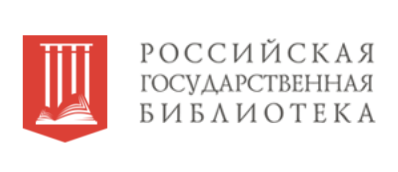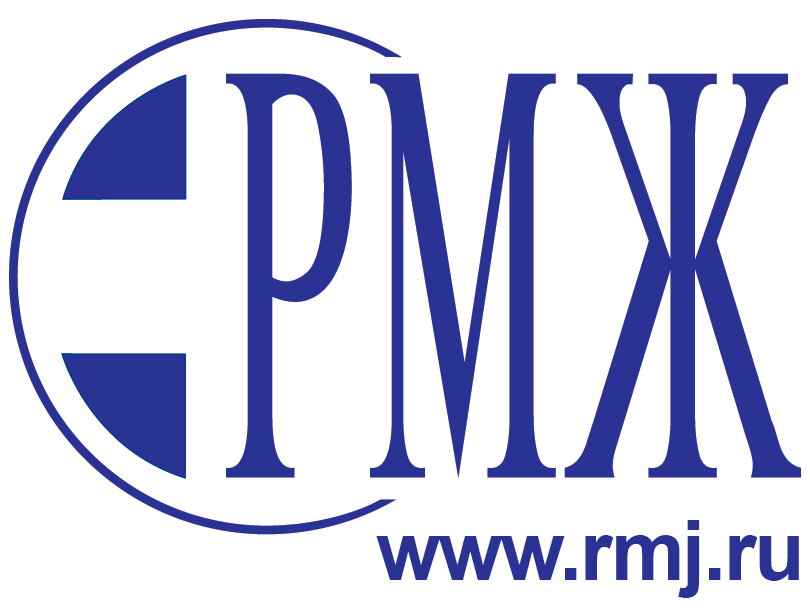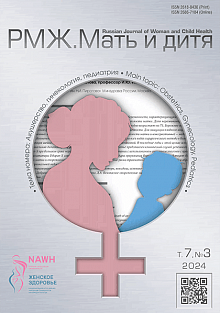Russian Journal of Woman and Child Health
History
In 2008, a novel thematic issue, “RMJ. Mother & Child”, covering the problems of obstetrics, gynecology, and pediatrics, emerged in a periodic line of the Russian Medical Journal. Initially, the issue was published twice a year. A large circulation, free distribution among healthcare facilities and doctors provided high-quality information to doctors of all Russian regions. As a result, the journal gained trust.
This area was highly useful. By 2017, these thematic issues were published four times a year (at the end of each quarter).
There was a need for an issue leader, an expert in this field who will determine scientific and clinical topics to discuss in the journal, involve colleagues from various medical institutions and Russian cities and the nearest and far abroad, introduce recent advances and novel trends in obstetrics, gynecology, and pediatrics to Russian doctors, and present the experience of foreign experts, distinct views of the same issue, and practical guidelines.
It was Yuliya E. Dobrokhotova, Doct. of Sci. (Med.), Professor, Honored Doctor of Russian Federation, Head of the Department of Obstetrics & Gynecology of the Pirogov Russian National Research Medical University who became this leader.
Under the leadership of Prof. Dobrokhotova, the issues of the “RMJ. Mother & Child”, grown into a practical and scientific periodical. Finally, in 2018, this issue became a separate journal, “Russian Journal of Woman and Child Health” (ISSN 2618-8430 [Print], 2686-7184 [Online]) published four times a year.
Today
“Russian Journal of Woman and Child Health” is currently a peer-reviewed scientific-practical journal published four times a year that is involved in postgraduate education by providing scientific and practical information to physicians.
All submitted manuscripts undergo single-blind peer review. Recognized experts in the relevant field are engaged in the peer-review process.
The articles discuss important topics in obstetrics, gynecology, and pediatrics. The acceptable languages of manuscripts are Russian and English.
Andrey L. Zaplatnikov, Doct. of Sci. (Med.), Professor, Vice-chancellor for Instructional Work of the Russian Medical Academy of Continuous Professional Education is the chair of the pediatric section.
The authors and reviewers are the leading Russian and near abroad experts in obstetrics, gynecology, and pediatrics. The Editorial Board includes members from abroad each of which suggests themes of articles to be published. As a result, the articles cover issues that are important for both Russian and world science.
The most interesting, in the view of Russian Editorial Board members, article of each issue is translated into English and posted on the website so that foreign Editorial Board members can read and review it. The other aim is to make the journal available to the worldwide medical community.
Free distribution among Russian obstetricians, gynecologists, and pediatricians is an important characteristic of the journal that makes it available regardless of doctor’s income.
All articles since 2014 are open-access and published online. They are available in text and PDF format to provide easy reading and working with materials.
The engagement of leading Russian experts as authors, broad representation at large events, high printing quality, and free distribution are possible thanks to the partnership with major Russian and foreign pharmaceutical corporations.
What is published
The articles discuss the epidemiology, etiology, pathogenesis, diagnosis, and treatment of various obstetrical gynecological and pediatric diseases.
The journal publishes original papers on clinical and experimental trials and fundamental scientific works, reviews, lectures, case reports, translations of papers published in foreign journals (in the consent of the rights holder to the translation and publication), description of professional experience, comments, and conference reports.
The journal accepts manuscripts from all core Russian and CIS medical institutions as well as foreign counterparts. The journal is open for cooperation with Russian, CIS, and foreign experts including those from European, Asian, African, and American countries and Australia.
For whom we publish
The journal is a valuable source of information for practicing physicians, researchers, lecturers, and students who can get it free during scientific meetings or in their workplaces or read full-text online versions on the website.
To make materials available to the global scientific community, the Editorial Board accepts manuscripts in English to publish them as a printed version in Russian and online in English. The most interesting, in the view of Editorial Board members, article of each issue is translated into English and posted on the website. We plan to increase the number of translated papers.
Thanks to foreign Editorial Board members each of whom suggests topics for articles, the journal covers the issues which are important for both Russian and foreign physicians.
What we want to achieve
1. To remain the source of information on scientific-practical medical knowledge and best practices of Russian and foreign colleagues to provide Russian physicians with relevant and high-quality data on recent and the most effective therapeutic and preventive tools for obstetric gynecologic and pediatric diseases. For that purpose, the journal gradually increases the proportion of materials from both leading experts who communicate with foreign colleagues and international authors.
2. To expand the presence and visibility of Russian scientific publications in the international scientific information space by improving the quality of published materials (according to the international standards) and international relevance of their themes and translating manuscripts in English.
3. Over time, to become an international research platform for obstetricians, gynecologists, and pediatricians to discuss and share experience, by maintaining a high scientific level of discussion and involving the most experienced experts (researchers and practitioners) starting from the post-Soviet space and moving on to foreign countries.



















